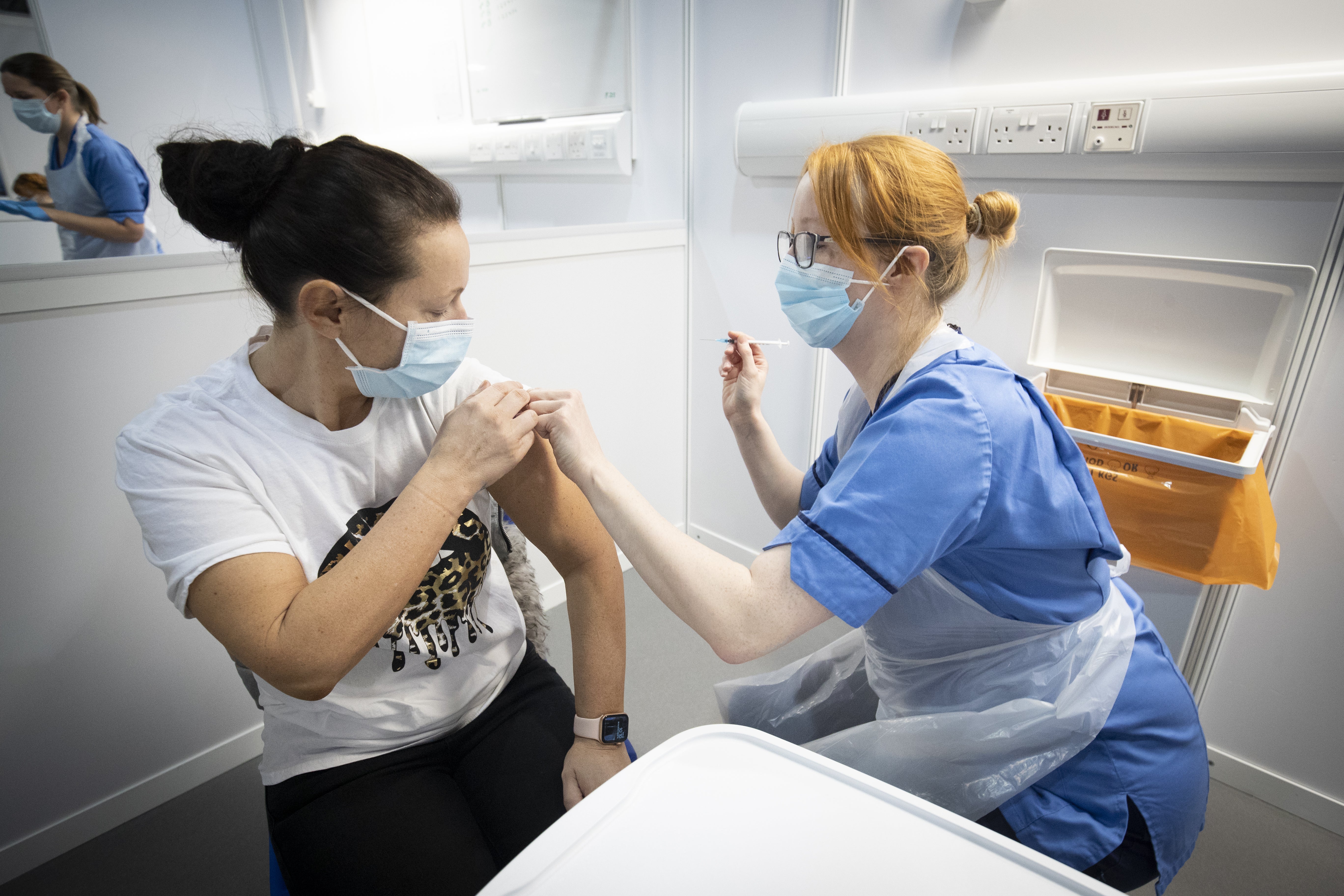How to talk to a friend or family member that doesn’t want the Covid vaccination
Experts share their thoughts on the matter, with Liz Connor.

Your support helps us to tell the story
From reproductive rights to climate change to Big Tech, The Independent is on the ground when the story is developing. Whether it's investigating the financials of Elon Musk's pro-Trump PAC or producing our latest documentary, 'The A Word', which shines a light on the American women fighting for reproductive rights, we know how important it is to parse out the facts from the messaging.
At such a critical moment in US history, we need reporters on the ground. Your donation allows us to keep sending journalists to speak to both sides of the story.
The Independent is trusted by Americans across the entire political spectrum. And unlike many other quality news outlets, we choose not to lock Americans out of our reporting and analysis with paywalls. We believe quality journalism should be available to everyone, paid for by those who can afford it.
Your support makes all the difference.While the roll out of Covid-19 vaccinations has given us hope that we may be able to spend the summer visiting loved ones, some people are still hesitant to sign up.
Health secretary Matt Hancock has voiced his frustration that some are still not getting the coronavirus vaccine when it’s been made available to them, particularly as the Indian variant poses a concern in relation to easing restrictions.
So how can you reassure a family member or friend that it’s in their best interests to get the jab? Here are a few expert tips…
Listen first
Priory psychiatrist Dr Paul McLaren says: “Don’t jump to conclusions – and certainly don’t jump to judgment. There are many possible reasons for reluctance – from a lack of understanding, to needle phobia, to disturbed thinking through illness.
“Show a loved one that you are really interested in their position by gentle questioning. Make sure they know you have heard their concerns, before challenging or presenting contrary evidence.”
Open the conversation strategically
“Vaccinations can be a really sensitive subject, so think about how you’re going to start the conversation,” says Harley Street therapist Karl Rollison, who has written a book linked to the topic, The Needle Phobia Handbook.
“There’s no real hard and fast guidelines of how to get through to someone, but you will know your partner, friend or family member best. Some people need fears challenged, while others will respond better to a non-aggressive tone; employ the strategy you think will be most effective.”
Get to the heart of the issue
“Before you can start to chat about the issue, you need to understand what it actually is,” reminds Rollison. “Are they worried about conspiracies – or could they be trypanophobic (scared of needles) or heamophobic (scared of drawing blood)?”
If someone has a phobia, Rollison says you can point them in the direction of therapy and strategies that can help them overcome the issue. If they’re worried about conspiracies meanwhile, you could share some information from trusted news sources that debunk vaccine myths.
Talk about other family members’ feelings
“It’s always good to bear in mind that vaccination is a personal choice. However strongly you might feel, everyone has the right to choose what they feel is best for their health,” says Rollison.
“That said, it’s important to remind a family member that their decision doesn’t just affect them – if you live together, then it has an impact on the whole family unit and could be the reason for someone getting ill.”
Avoid overloading them with facts and statistics
“If someone is resistant, throwing lots of statistics and facts at them probably isn’t going to help, because they’ve likely already done their own research and come to their own conclusions,” says Rollison.
You could always follow up the conversation with some links to science-backed articles that you think might reassure them, which they can digest in their own time.
Connect it back to real life
“Remind your friend or family member that getting the jab is for the greater good of themselves, by talking about some of the potential consequences of staying unvaccinated,” says Rollison.
“You could use some non-aggressive phrases like: ‘I respect your decision, but not taking the vaccine means we can’t visit Aunt Ethel this summer, which I know is important to you.’
“We’re still understanding exactly what having the vaccine will mean for everyone, but talking about some of the ways it could affect day-to-day life – like limiting travel – could be helpful in changing their mind.”